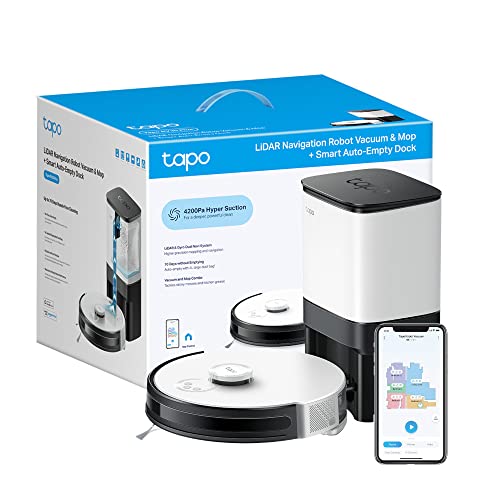How To Create An Awesome Instagram Video About Lidar Robot Vacuum Clea…
페이지 정보
작성자 Felicitas 댓글 0건 조회 29회 작성일 24-03-18 01:26본문
Buying a Robot Vacuum With LiDAR
A robot vacuum equipped with lidar sensors can create a map of the home to help it avoid obstacles and plan routes efficiently. It can also detect small objects that other sensors may miss. Lidar technology is well-known for its effectiveness in the field of aerospace and self-driving vehicles.
However, it isn't capable of seeing tiny obstacles such as power wires. This can cause the robot to become caught up in a mess or be damaged.
lidar mapping robot vacuum technology
The introduction of LiDAR (Light detection and Ranging) technology has significantly improved the navigation systems in robot vacuums. These sensors emit laser beams and determine the amount of time it takes them to reflect off objects within the environment and allow the robot to build an accurate map of its surroundings. This allows the robot to navigate and avoid obstacles and facilitates the cleaning process.
The sensor is able to detect a variety of surfaces including furniture, floors walls, walls and other obstacles. It also can determine the distance of these objects from the robot. This information is used to calculate a route that will minimize collisions and cover the room in the most efficient way. lidar mapping robot vacuum is more precise than other navigation systems such as infrared and ultrasonic sensors that are susceptible to interference by reflective surfaces and complex layouts.
This technology can improve the performance of a broad range of robotic vacuum models from budget models to high-end models. For example the Dreame F9, which boasts 14 infrared sensors, can detect obstacles with up to 20 millimeters of precision. However, it needs constant supervision and may miss smaller obstacles in tight areas. It is recommended to buy an expensive model that has LiDAR which allows for better navigation and cleaning.
Lidar-equipped robots also possess the ability to keep track of the layout of the environment which allows them to clean more efficiently during subsequent cycles. They can also adapt their cleaning strategies to different environments, such as transitions from carpets to hard floors.
Some of the best lidar robot vacuums are also equipped with wall sensors, which stop them from pinging off furniture and walls when cleaning. This is a common source of damage and could cost a lot of money if the vacuum breaks anything. It is however possible to disable this feature when you don't wish for your robot to complete this job.

A robot vacuum equipped with lidar sensors can create a map of the home to help it avoid obstacles and plan routes efficiently. It can also detect small objects that other sensors may miss. Lidar technology is well-known for its effectiveness in the field of aerospace and self-driving vehicles.
However, it isn't capable of seeing tiny obstacles such as power wires. This can cause the robot to become caught up in a mess or be damaged.
lidar mapping robot vacuum technology
The introduction of LiDAR (Light detection and Ranging) technology has significantly improved the navigation systems in robot vacuums. These sensors emit laser beams and determine the amount of time it takes them to reflect off objects within the environment and allow the robot to build an accurate map of its surroundings. This allows the robot to navigate and avoid obstacles and facilitates the cleaning process.
The sensor is able to detect a variety of surfaces including furniture, floors walls, walls and other obstacles. It also can determine the distance of these objects from the robot. This information is used to calculate a route that will minimize collisions and cover the room in the most efficient way. lidar mapping robot vacuum is more precise than other navigation systems such as infrared and ultrasonic sensors that are susceptible to interference by reflective surfaces and complex layouts.
This technology can improve the performance of a broad range of robotic vacuum models from budget models to high-end models. For example the Dreame F9, which boasts 14 infrared sensors, can detect obstacles with up to 20 millimeters of precision. However, it needs constant supervision and may miss smaller obstacles in tight areas. It is recommended to buy an expensive model that has LiDAR which allows for better navigation and cleaning.
Lidar-equipped robots also possess the ability to keep track of the layout of the environment which allows them to clean more efficiently during subsequent cycles. They can also adapt their cleaning strategies to different environments, such as transitions from carpets to hard floors.
Some of the best lidar robot vacuums are also equipped with wall sensors, which stop them from pinging off furniture and walls when cleaning. This is a common source of damage and could cost a lot of money if the vacuum breaks anything. It is however possible to disable this feature when you don't wish for your robot to complete this job.

댓글목록
등록된 댓글이 없습니다.

